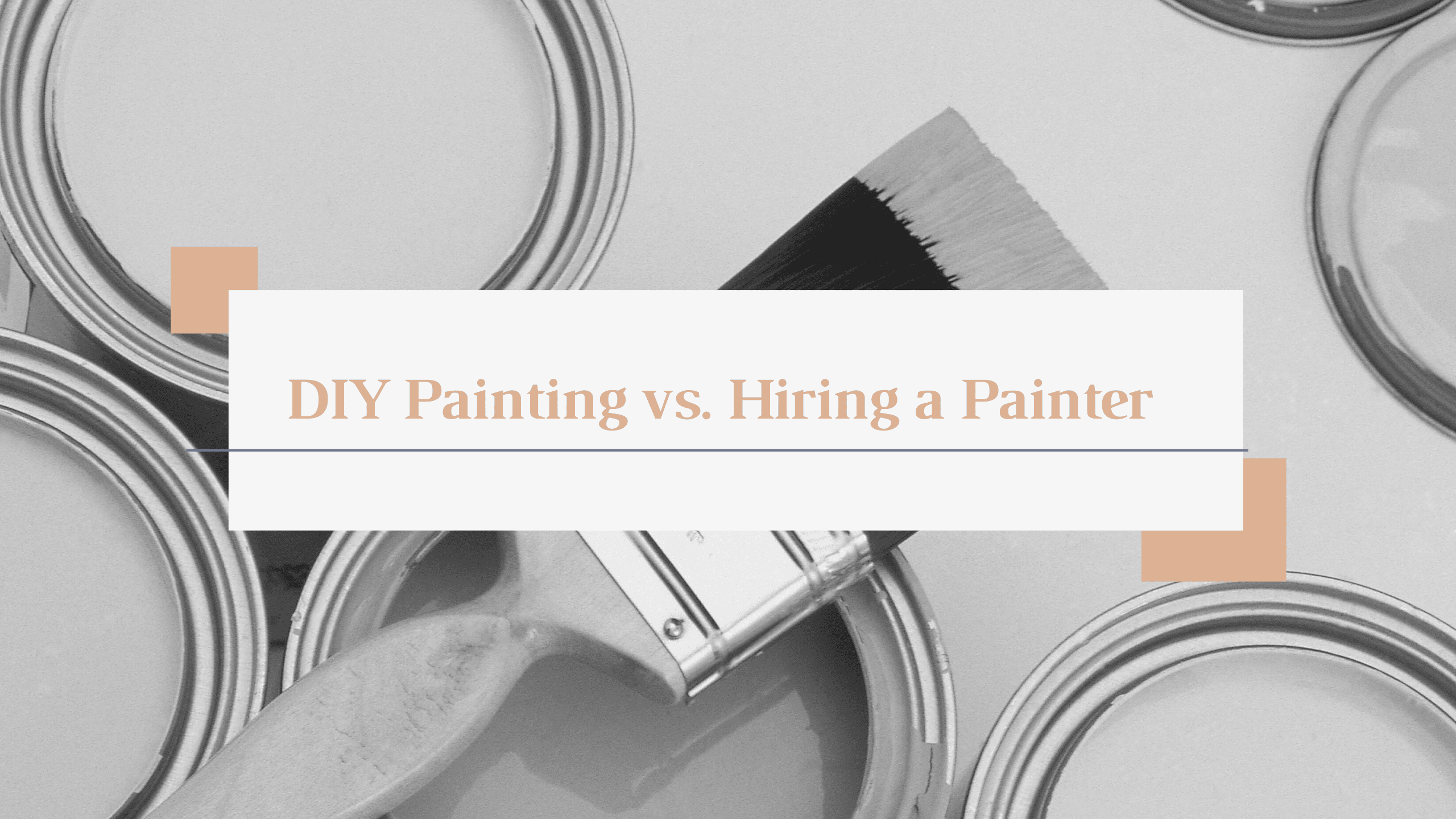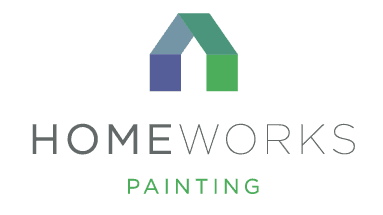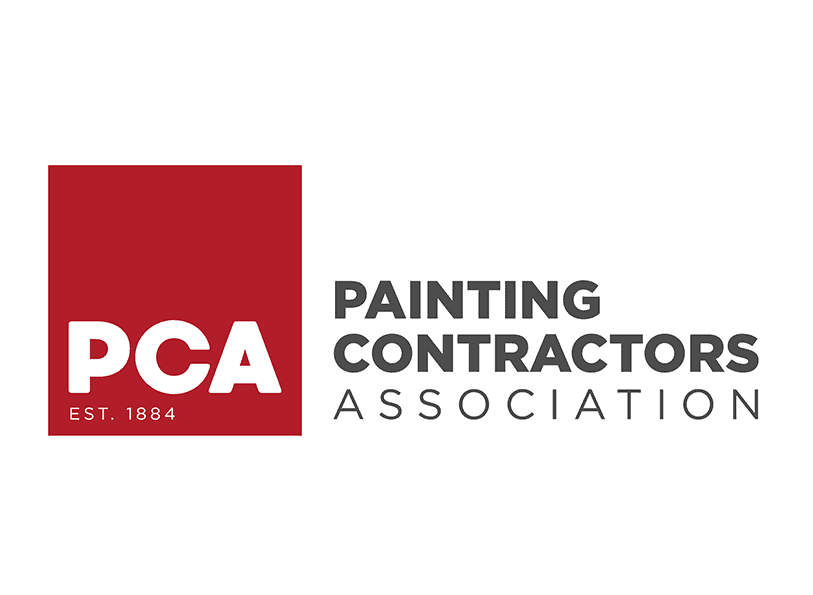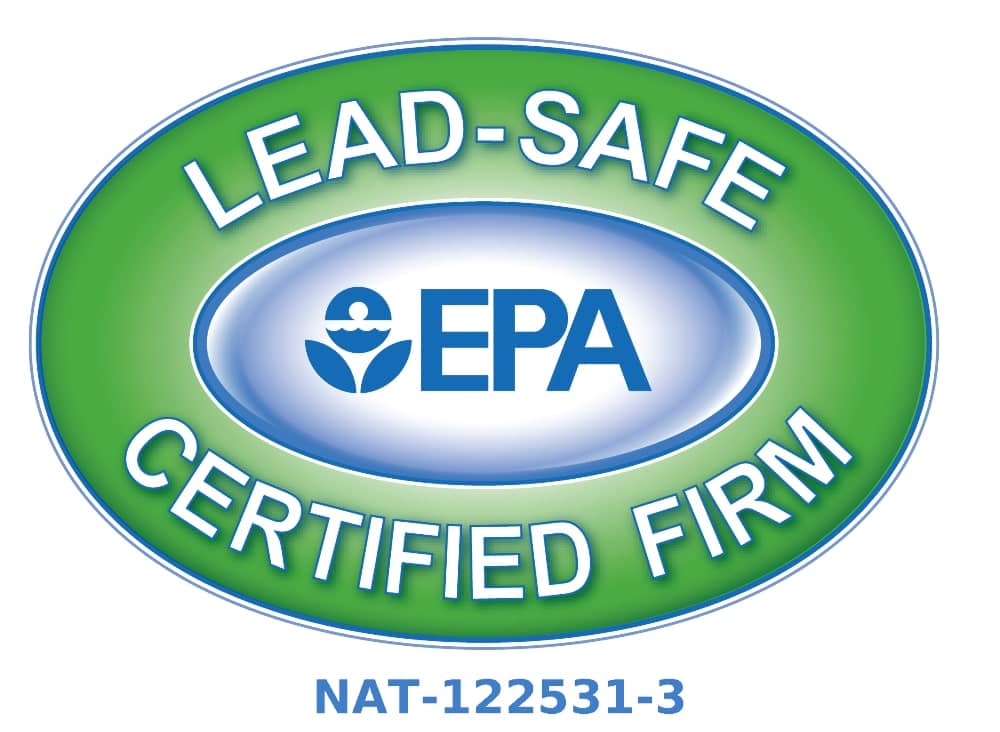
13 Feb DIY Painting vs. Hiring a Painter
Should you paint your home yourself instead of hiring a professional painter to save money? It might be tempting because you think it will save you money. However, that’s not a typical outcome. So, before you DIY your home painting project, there are some crucial things to know.
Experience and Preparation
Preparing the surface before painting is a crucial first step in any painting project. The quality of the prep work depends on the experience and skill of the person doing the work and the materials used.
The more complex the project, the more skill, time, and effort will be required to prepare the project correctly before beginning to paint. For example, issues like nail pops, dry rot, scratches, stains, or sheetrock repairs must be fixed appropriately before painting over them.
Professional painters can repair things in less time than most homeowners. Homeowners often lack the necessary experience, skills, and knowledge of the appropriate techniques to do the job correctly. Another difference is that many homeowners will need to learn what materials or tools to use for repairs. This lack of experience can cost the homeowner more money than if they’d hired professional painters.
When you hire a professional painter, you’re paying for their knowledge, skills, and experience, which can save you time and money in the long run. It’s not uncommon for homeowners to attempt a painting project themselves, only to realize that they need the help of a professional painter to fix their mistakes.
Paint Process
After collecting all the necessary materials and supplies, you must follow the correct process to achieve the best results. It’s more complex than you might think.
Knowledge plays a crucial role! A skilled and experienced painter can work more efficiently and effectively than an average DIYer, resulting in a better-finished product. Professionals are also familiar with the correct process to achieve great results.
Priming
In many cases, you will need to prime before you paint. For example, if you paint over a dark color, you will need to prime first, and a high-quality primer is a must. Also, it must be a suitable primer for the surface and paint type already on the surface.
If you’re thinking about using an all-in-one paint and primer product, we recommend our blog post on those products.
Painting
To avoid buying too much or too little paint, you’ll need to estimate the amount of paint required. Start by measuring the square footage of the room. If you’re using good painting techniques, a gallon of paint should cover about 450 square feet. (Professionals use less paint than DIYers as they know how to soak brushes and rollers properly.)
Besides selecting a color, you need to choose the right paint type for the surface – oil or latex paint. The paint type matters; whichever paint is already on the surface will influence which paint you use for repainting. Lastly, there’s also the type of sheen (eggshell, high-gloss, flat, etc.). Different surfaces require different sheens. For instance, oil paint works best for most baseboards and trim.
Cleaning Up
The room looks great, you’re done painting, and the clean-up begins! And how you clean up can impact your future paint projects! Cleaning up is an integral part of the painting process, partly for safety reasons. It’s essential to keep in mind that you may be dealing with highly flammable products. Therefore, properly storing and disposing of them is crucial to avoid potential hazards.
The clean can involve, but isn’t limited to:
-
-
-
- Cleaning your brushes according to the paint type you’re using
- Proper and safe disposal of dirty rags
- Proper and safe disposal of chemical or paint-soaked materials, such as paint buckets, rags, and trays (Most communities strictly regulate the disposal of flammable chemicals and products.)
-
-
We have the experience and skill to tackle your next paint project safely and efficiently in your home or office. We value the results, so our customers return to us when they need to repaint. Call our office to schedule an estimate of your next project. Save your time and energy for something else, and let the pros handle the project!
FAQ
1. What are the main advantages of DIY painting for my home?
-
Cost savings, as you only pay for materials and not labor.
-
Full creative control over color choices, techniques, and project timeline.
-
Personal satisfaction and a sense of accomplishment from completing the work yourself.
-
Flexibility to work at your own pace and schedule.
2. What are the benefits of hiring a professional painter instead of doing it myself?
-
Professional painters bring expertise and experience, ensuring a high-quality, flawless finish.
-
The project is completed more quickly and efficiently, saving you time and effort.
-
Professionals handle all aspects, including surface preparation and cleanup, reducing stress and hassle.
-
They have the right tools and equipment for every part of the job, including hard-to-reach areas and safety concerns.
3. Are there any drawbacks to DIY painting I should consider?
-
Painting can be very time-consuming, especially for larger spaces or multiple rooms.
-
Achieving a professional-looking finish requires skill and experience; mistakes can lead to uneven coats, drips, or visible brush marks.
-
Physical demands, such as climbing ladders and repetitive motions, can be challenging.
-
You may need to invest in or rent additional equipment and supplies.
4. What are the potential downsides of hiring a professional painter?
-
The cost is typically higher due to labor charges.
-
You may have less direct control over the project timeline and specific details.
-
Miscommunication can sometimes result in outcomes that don’t fully match your expectations.
5. How do I decide whether to DIY or hire a professional for my painting project?
-
Consider your budget, available time, and desired quality of results.
-
Assess your own skill level and willingness to take on the physical and technical aspects of painting.
-
For small, simple projects, DIY may be a good option. For larger, more complex, or high-visibility areas, hiring a professional often ensures better results and less stress.
-
Think about the long-term value: a professional job may last longer and require fewer touch-ups.

Mike Katounas is the owner of Home Works Painting, a painting business in Northern Virginia. He has over 15 years of experience in residential interior and exterior painting, drywall installation/repair, carpentry, wallpaper removal, power washing, commercial painting, color consultation, and staining/sealing. Their service areas include Chantilly, Fairfax, Herndon, Oakton, Reston. Mike takes pride in his work, and he always follows a strict code of conduct that includes the use of quality paint, a clean workspace, and an honest, respectful approach to his customers.












Sorry, the comment form is closed at this time.